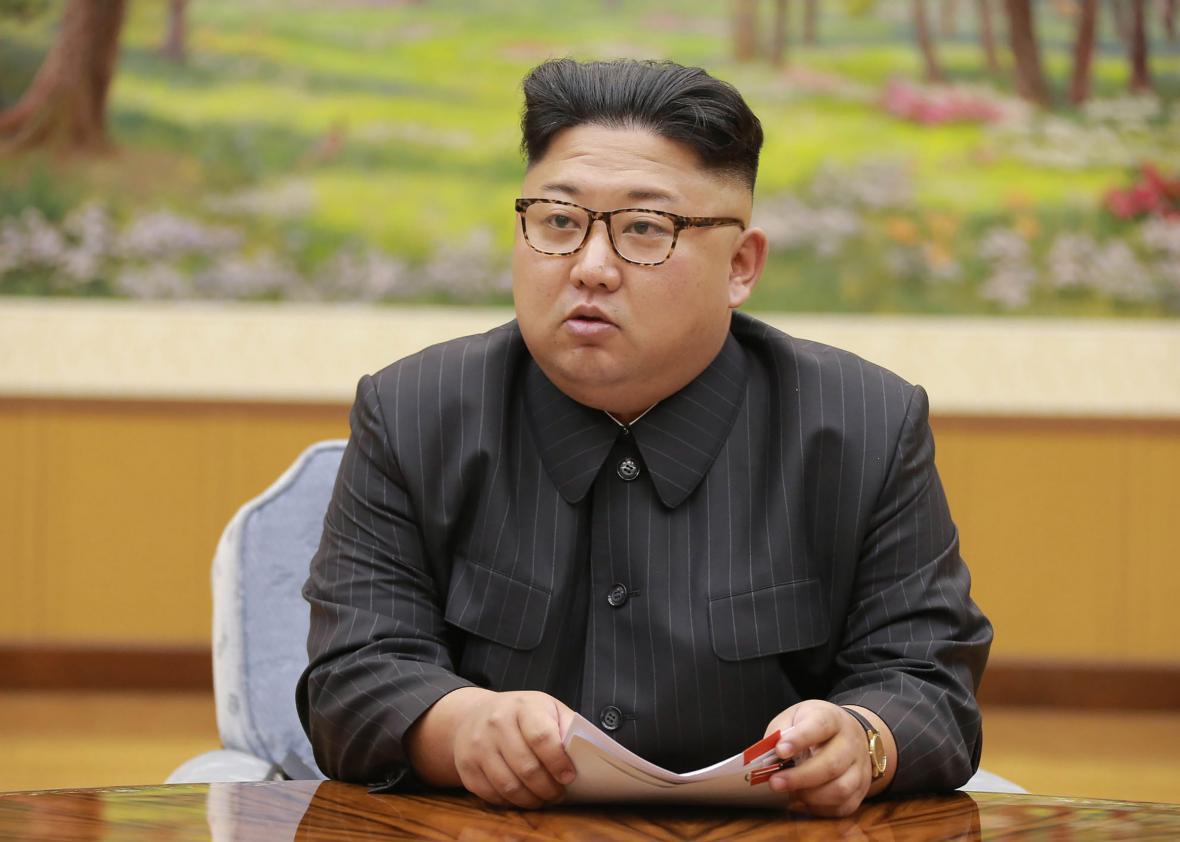In the wake of North Korea’s latest nuclear test, the most powerful one to date, everyone in the Trump administration is stressing that military options are, as always, “on the table.” But the most likely immediate response, as indicated by Ambassador to the United Nations Nikki Haley, will be to push for even tougher sanctions from the U.N. Security Council. Despite their overall reluctance when it comes to sanctions, permanent council members China and Russia have been willing to go along with measures like this when North Korea has done something truly provocative, and there’s a good chance this will be one of those times. But North Korea has been under U.N. sanctions aimed at deterring its missile and nuclear programs for more than 10 years, and U.S. sanctions for more than 20. Those measures didn’t stop the country from developing nuclear weapons, and seem even less likely to contain Kim Jong-un now that he has them.
Sanctions are generally an overrated tool. According to one study, by the Peterson Institute for International Economics, they succeed in altering a country’s behavior only 34 percent of the time, and are more likely to work when the goal is modest—freeing a political prisoner, say—rather than asking for major military concession or a fundamental change to the political nature of a regime. Nonetheless, they remain Western powers’ favored option for demonstrating their resolve to rogue states when diplomacy fails and military force is either unwarranted or too risky.
Sanctions work best when they align with the preferences of the targeted country’s population. For instance, they were effective in putting pressure of South Africa’s apartheid government because they complimented political organizing by the country’s black majority. South Africans, including whites, also tended to view their country as a democracy and were sensitive to being turned into a pariah state. Similarly, economic sanctions helped bring Iran to the table for what became the now-imperiled 2015 nuclear deal. Many in the U.S. are skeptical about the Iranian government’s true motives in agreeing to that deal, but at the very least, the results of the 2013 and 2017 presidential elections show that many Iranians support efforts to end the country’s isolation—and the resulting economic stagnation—through diplomacy. It also helped, in Iran’s case, that the regime claimed it had never been working on nuclear weapons at all: The government didn’t have to save face because it didn’t have to acknowledge any concessions.
North Korea is not like these cases. By all accounts, from a pure strategic point of view, North Korean leaders view their nuclear weapons as the best defense against invasion and regime change by much larger, more powerful rivals. They have little incentive to give them up. And North Korea’s government is not trying to end its international isolation, it’s trying to perpetuate that isolation at all costs: The idea of rejoining the family of nations is not likely to be all that appealing. Since the cessation of hostilities in the Korean War—technically, the war never ended—the Kim regime has based its legitimacy on its ability to stand up to foreign powers. Giving up its prized strategic asset in response to sanctions would be a major military and political capitulation.
In this sense, North Korea is less like Iran or South Korea than Cuba—where a half-century U.S. embargo only bolstered the Castro regime’s revolutionary bona fides—or Vladimir Putin’s Russia, where punishing sanctions and economic malaise have done little to hamper the government’s controversial foreign-policy adventurism.
The difference is that these countries at least have some domestic support aligning with the goals of the sanctions. It’s difficult to know what the citizens of a country as isolated and repressive as North Korea really think about their government, its weapons program, or its isolation from the outside world, but it doesn’t really matter since the country has no organized political opposition to speak of. Kim may be paranoid about a lot of things, but a public uprising doesn’t seem to be one of them.
Despite all this, pushing for tougher sanctions is probably still the best bad option for responding to North Korea. There’s abundant evidence that North Korea’s trading partners—yes, China, but not only China—haven’t been fully enforcing the existing sanctions and more pressure could be put on them to do so. It’s also worthwhile to pressure China and Russia to publicly back this effort and put their own credibility on the line. It’s also a signal to others: North Korea may not particularly care about being a reviled, pariah, hermit state, but other countries don’t necessarily want that status.
It’s also basically the only option. The catastrophic risks of military action mean that for the time being, the world is most likely going to have to live with a nuclear North Korea. Kim is young but won’t rule forever. China’s strategic priorities could change. There’s little chance for a diplomatic breakthrough right now, but there might be in the future, and sanctions relief could be a valuable bargaining chip. For now, though, we need to be realistic about what even the toughest sanctions can accomplish.
